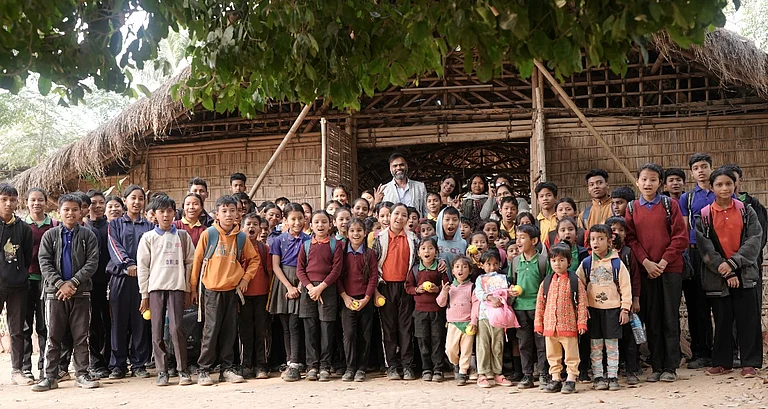Musharraf’s special mention of Manmohan Singh illustrates vividly the resonance India’s offer of help has had in Pakistan. Always sensitive to the sentiments in the public gallery, the president perhaps realised the palpable willingness of a beleaguered people to partake of India’s relief supply: medicine, tents, blankets, clothes, biscuits. He praised India because he knew he was articulating the dominant sentiment among his people.But such sentiments were swept aside when Pakistan turned down India’s offer to assist in rescue operations. Think of the sensitivities involved, Musharraf’s men argued. Then Islamabad expressed its wish to fly choppers in the no-fly zone, roughly a kilometre off the LoC; New Delhi said it could only grant clearance on a case-by-case basis. Pakistan next sought Indian helicopters without their pilots flying them; India said no, not possible. It was back to mutual suspicion which, fortunately, didn’t break into open acrimony.
The English daily Dawn, however, was sagacious in its comment, "Perhaps it is too early to expect the two countries to drop their mutual reservations....Prime Minister Manmohan Singh has offered to help victims in parts of Azad Kashmir that have been cut off from Muzaffarabad but can be reached from the Indian side of Kashmir. These gestures from New Delhi will be welcomed and are of great significance because they underline growing warmth between the two countries."
So has the quake opened yet another window of opportunity for cementing Indo-Pak ties? Columnist Ayaz Amir remarks, "India has stressed too much on this window of opportunity. It hasn’t managed to bring relief to their part of Kashmir affected by the quake. It’s a bit too much to see India harp on its offer of help across the LoC. What window of opportunity? Pakistan is engulfed in its own problems and can hardly think in these terms. What India can do if it is so large-hearted is to give access to their part of Kashmir which we can use."
Former foreign secretary Dr Tanveer Ahmed suggests the cooperation between the countries could have been better had they taken into account each other’s sensitivities. For instance, he says India should have allowed Pakistani choppers to operate freely in the no-fly zone, instead of granting permission on a case-by-case basis. He further adds, "Pakistan’s side should have been accessible to IndianNGOs and relief workers. This was certainly a missed opportunity as that did not happen."
Ahmed also feels cooperation during times of calamity can help only to a point. "I’m not sure whether the ongoing cooperation would help impart flexibility to the composite dialogue between the two countries." He cites the instance of Iran which was rocked by a quake last year. "The West rallied to help Iran then. But this did not prevent it from moving against Tehran on the nuclear non-proliferation issue." In the world of diplomacy, nations can separate their heart from mind: they can be generous yet play hardball.





















